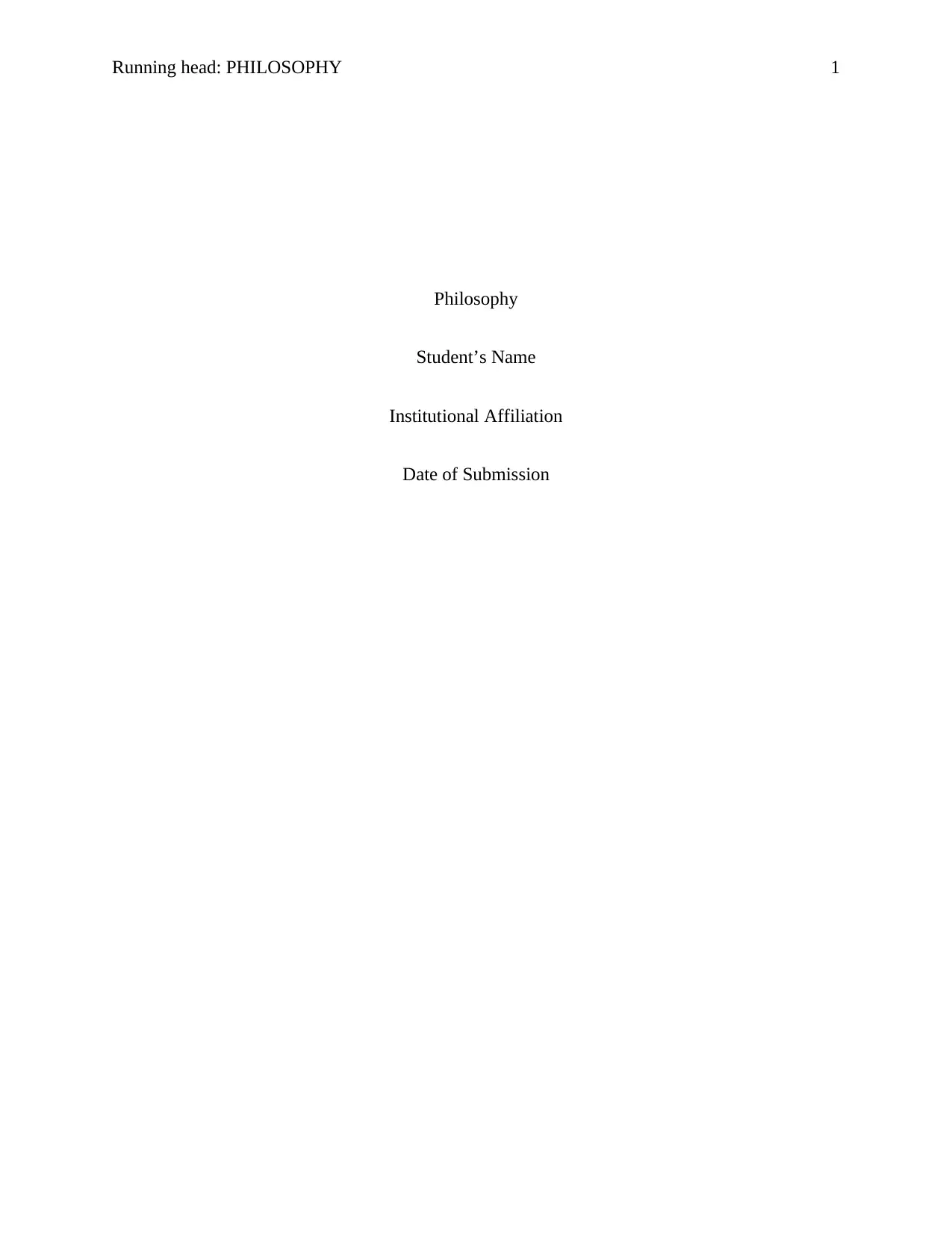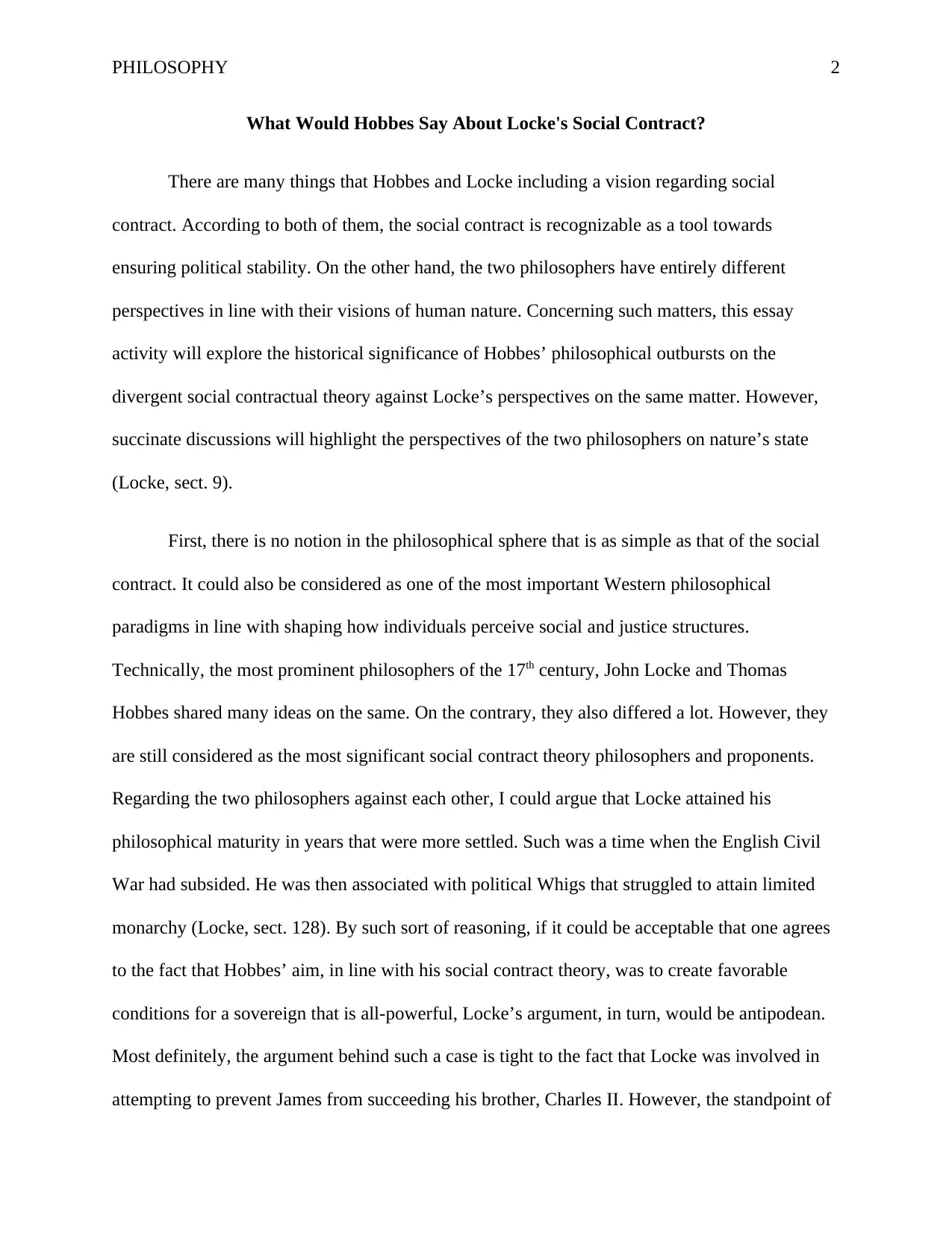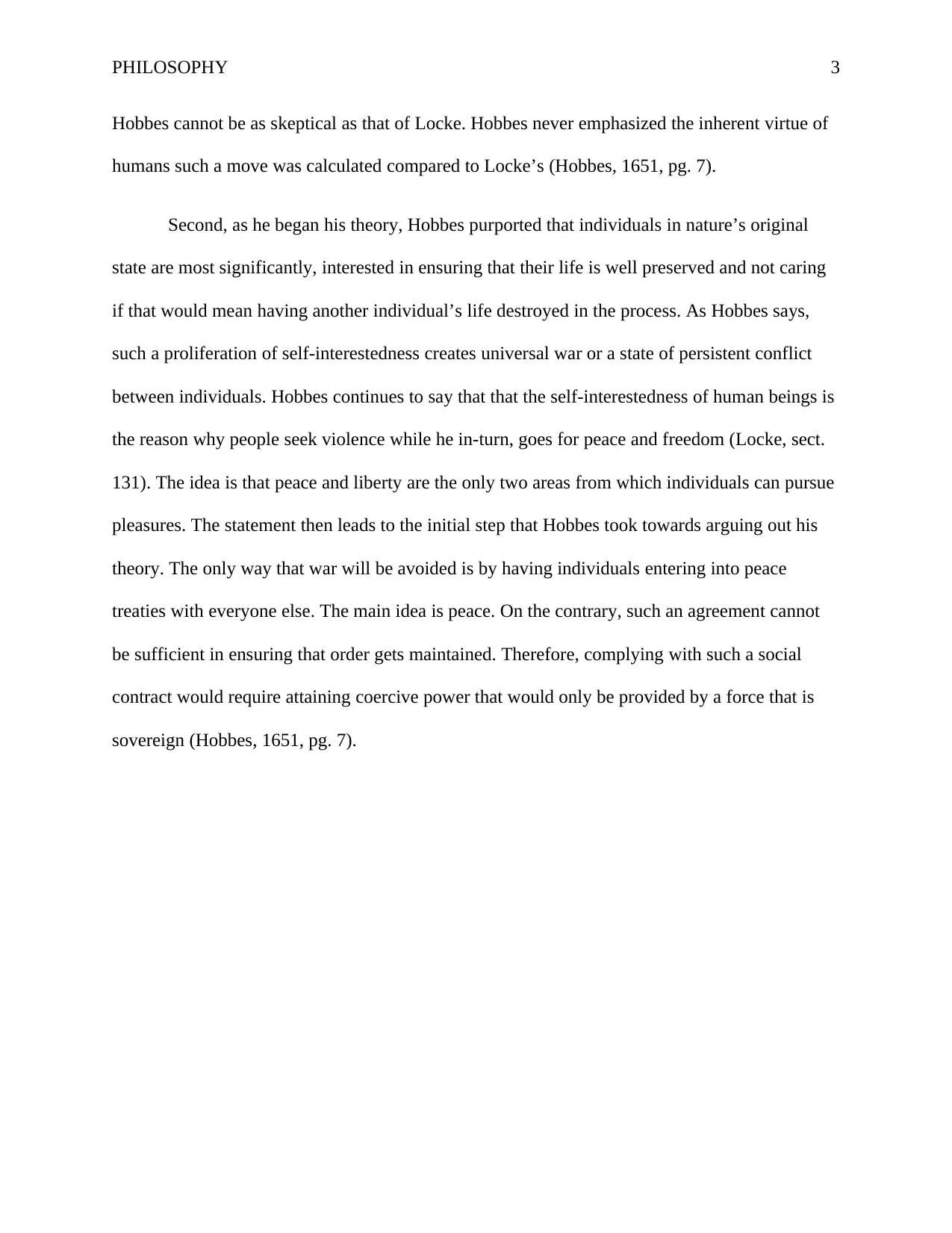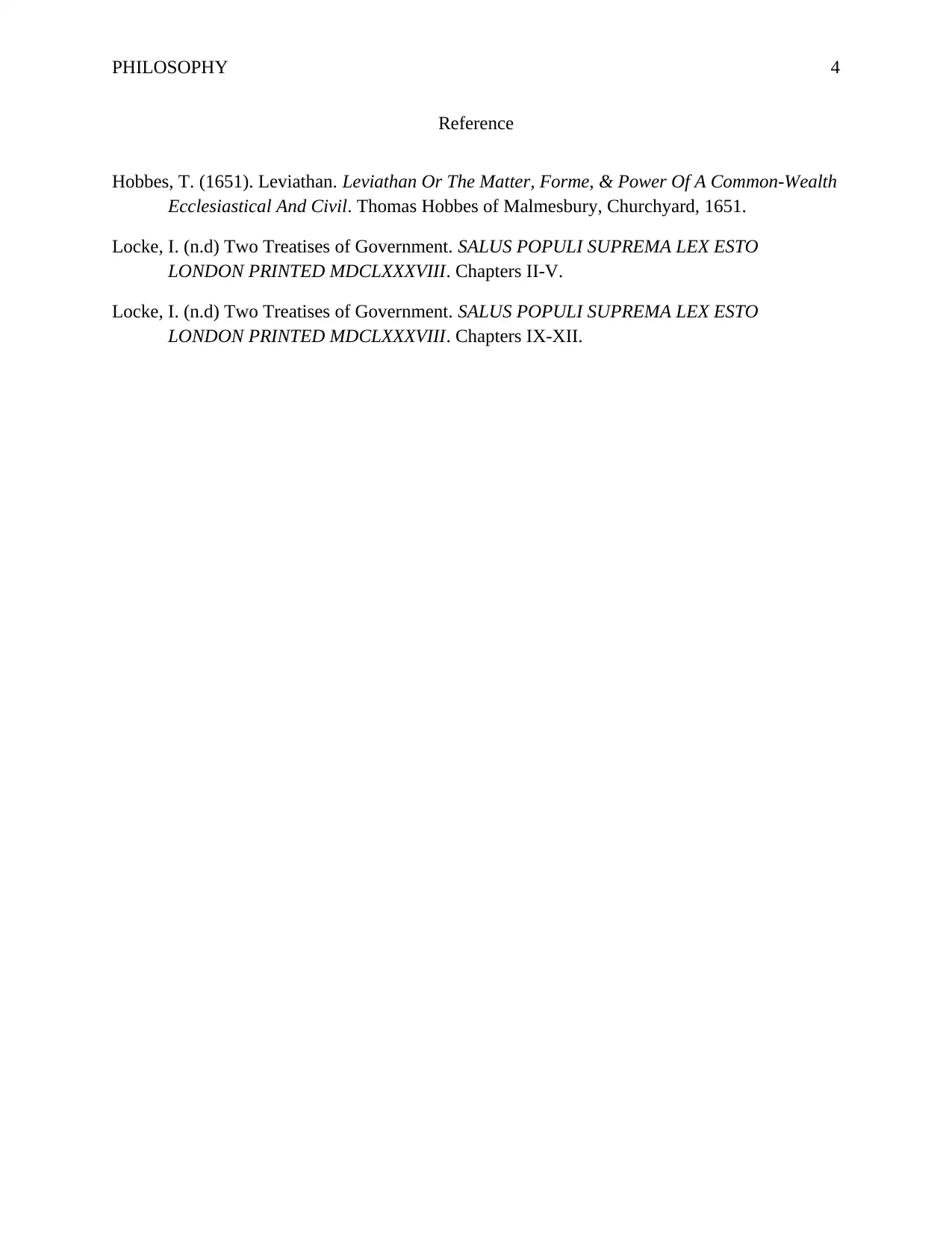PHILOSOPHY Assignment: Hobbes' and Locke's Views on Social Contract
VerifiedAdded on 2021/12/14
|4
|724
|62
Essay
AI Summary
This essay delves into the contrasting social contract theories of Thomas Hobbes and John Locke, two prominent philosophers. It examines their differing perspectives on the state of nature, human behavior, and the role of government in ensuring political stability. The essay highlights Hobbes's view of a powerful sovereign as essential for maintaining order, contrasting it with Locke's emphasis on individual rights and limited government. It explores how their views on human self-interest and the potential for conflict shaped their respective social contract theories, ultimately offering insights into their historical significance and ongoing relevance within the field of political philosophy. The essay also references key texts such as Hobbes's Leviathan and Locke's Two Treatises of Government to support its arguments.
1 out of 4











![[object Object]](/_next/static/media/star-bottom.7253800d.svg)